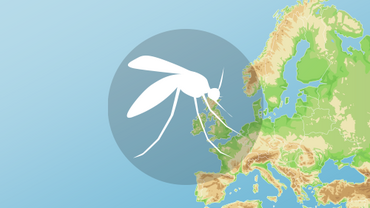ECDC expert visit to Malta: conclusions and recommendations
A team of experts from ECDC and four EU countries (France, Italy, Portugal and Spain) visited Malta from 3 to 6 July 2016 and met with staff from the Ministry of Health and key stakeholders in Malta to discuss preparedness planning for mosquito-borne diseases.
The visit aimed to answer a request for support by the Maltese Minister of Health to tackle the challenge that the country is currently facing because of the presence of competent vectors for major mosquito-borne diseases in Malta. The purpose of the expert team’s visit was to support the development of preparedness strategies and a preparedness plan by (1) gaining a better understanding of the situation of mosquito vectors in Malta, (2) involving relevant key stakeholders in the preparedness planning, and (3) identifying priority areas for immediate actions and long-term needs.
During the visit, the team performed site visits and held meetings with authorities and experts from different sectors in order to share experiences and examples of good practice with regard to mosquito-borne diseases preparedness, as well as discuss and identify areas for improvements.
Based on the team’s observations and the discussions held in Malta, the following actions should be considered:
- Enlarge the scope of preparation and response measures against mosquito-borne diseases whose vectors are already present in Malta to also cover Zika virus disease.
- Implement intersectoral collaboration procedures for mosquito-borne disease preparedness by building upon the willingness demonstrated by all partners from key sectors outside public health (veterinary services, environmental health, port and airport authorities, tourism, and academia).
- Cement the role of public health authorities to coordinate the multidisciplinary approach of mosquito-borne disease preparedness and promote synergy among stakeholders for technical support and funding.
- Implement integrated information systems (epidemiological, entomological, environmental and meteorological, including GIS) that can provide data to support decision-making, actions and communication.
- Reinforce the allocation of dedicated resources and identify staff for mosquito-borne disease surveillance and control.
- Define a national multi-sectoral communication strategy for the prevention and control of mosquito-borne diseases.
- Increase awareness and improve the understanding of mosquito-borne diseases among clinicians, laboratory staff and other staff, the media and the general public.
- Organise appropriate training activities for various staff categories to support capacity building in mosquito-borne disease prevention and control, in particular in the areas of entomological surveillance and vector control.
- Take advance of the expertise and experience of other countries to strengthen local capacities and capabilities (through mediation and facilitation of the ECDC).
The above conclusions and recommendations were welcomed by the authorities in Malta. ECDC restated its availability to continue to support the development of the preparedness planning.






